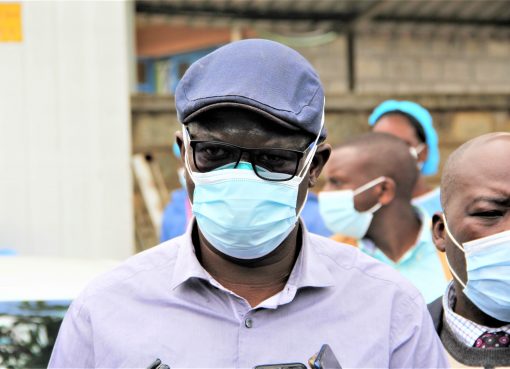The East African Community (EAC) Council of Health Ministers has directed all partner states to ensure that trucks transporting goods in the region have only two to three crew members to conform with prevailing health precautions against the Covid-19 pandemic.
EAC said the crewmembers on transit and other travelers will be screened and quarantined for 14 days as per the set national guidelines, while the trucks and vehicles will be decontaminated before they are allowed to continue with their journey, to avoid exporting cases of Covid-19 to the countries they are headed to.
In a joint statement issued by Ministers for Health and East African Community Affairs under the Chair of Dr. Daniel Ngamije, the Council said truck drivers will only be required to declare their final destination and will only stop at designated points along the transport corridors as a measure to limit chances of spreading the disease.

“Crews for cargo planes and vessels will be determined by the specifications of the aircraft or ship and set international guidelines, where the crew will be quarantined at a government designated hotel for the period of their stay,” Dr Ngamije said.
He said the region has reported 94 confirmed cases of Coronavirus, among them 14 in Uganda, 28 in Kenya, Rwanda with 40 and Tanzania 12 while South Sudan and Burundi have no confirmed cases.
He said partner states are required to establish a surveillance system to monitor the health of crews and be able to trace contacts.
Dr. Ngamije who is also the Rwanda Minister of Health and Chairperson of the EAC Sectoral Council of Ministers responsible for Health said partner states should also implement 100 percent exit and entry screenings by applying the multilayer mechanism to avoid loopholes on transit passengers.
He said EAC has suspended regional face-to-face meetings and will utilize video conferencing, webinars and skype calls for holding meeting until the situation is contained.
“We will strengthen information sharing through press conference and linkage of national taskforces to facilitate quick response, continuous reporting, and facilitate contact tracing for potential coronavirus exposed persons,” said Dr. Ngamije.
He also called upon East African Health Research Commission (EAHRC) to synthesize and conduct research on Covid-19 and inform partner states on new technologies, advances in care and treatment, vaccines, behavior of the virus, diagnostic procedures among others.
The Rwandese Minister also directed EAC partner states embassies and high commissions to coordinate their citizens who may have been affected by the closure of borders and facilitate their movement to their final destination in the region.
Countries in the region have also been asked to support local companies in the production and availability of sanitizers, medical products and soaps among other commodities which are key in containing the Covid-19 disease.
“We also call on partner states to provide additional contingency and emergency funds to address gaps in prevention and impact mitigation to mitigate the impact of the disease,” said Dr. Ngamije, and noted that there is need for the states to mobilize resources and invest in public health systems for resilience and health security.
The 4th Extra-ordinary joint meeting that was held via video conferencing was attended by Ministers from Rwanda, Tanzania, South Sudan, Uganda, Kenya and Burundi.
The purpose of the meeting was to share existing knowledge and information on the Covid-19 outbreak, deliberate on the pandemic, map out containment strategies to stem any further spread of the disease in the region and to develop a clear plan to mitigate against impact caused by the pandemic in the region.
By Bernadette Khaduli




